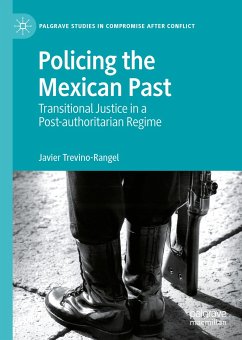This book critically examines transitional justice in Mexico. It explores how the Mexican democratic regime dealt with the grave human rights violations perpetrated by security forces during the authoritarian era (1929-2000) through a Special Prosecutor's Office. It offers a complete account of the diverse factors that facilitated the emergence (and policing) of Mexico's transitional justice process. Whilst transitional justice should contribute to the advancement of liberal democracy and, consequently, generate the following benefits: truth, justice, political reconciliation, peace, this book argues that Mexico is a case of transitional injustice. It is an example of how in some societies transitional justice mechanisms are intentionally implemented in ways that, instead of generating justice, produce impunity. It makes important contributions to some of the broader debates addressed by scholars on transitional justice and gives them reason to re-examine transitional justice processes in other countries in a new light.
Javier Trevino-Rangel is Associate Professor in the Centre of Research and Literary Studies of Aguascalientes at the University of the Arts of Aguascalientes, Mexico. He's also visiting fellow in the Department of Sociology at LSE, UK. He has been Senior Lecturer in the Department of Social Sciences at Northumbria University, UK, and Assistant Professor in the Drugs Policy Programme at the Center of Research and Teaching in Economics (CIDE) in Aguascalientes, Mexico. His research interests include: human rights discourses and atrocities, narratives of violence, and justice in contemporary Mexico.
Dieser Download kann aus rechtlichen Gründen nur mit Rechnungsadresse in A, B, BG, CY, CZ, D, DK, EW, E, FIN, F, GR, HR, H, IRL, I, LT, L, LR, M, NL, PL, P, R, S, SLO, SK ausgeliefert werden.









